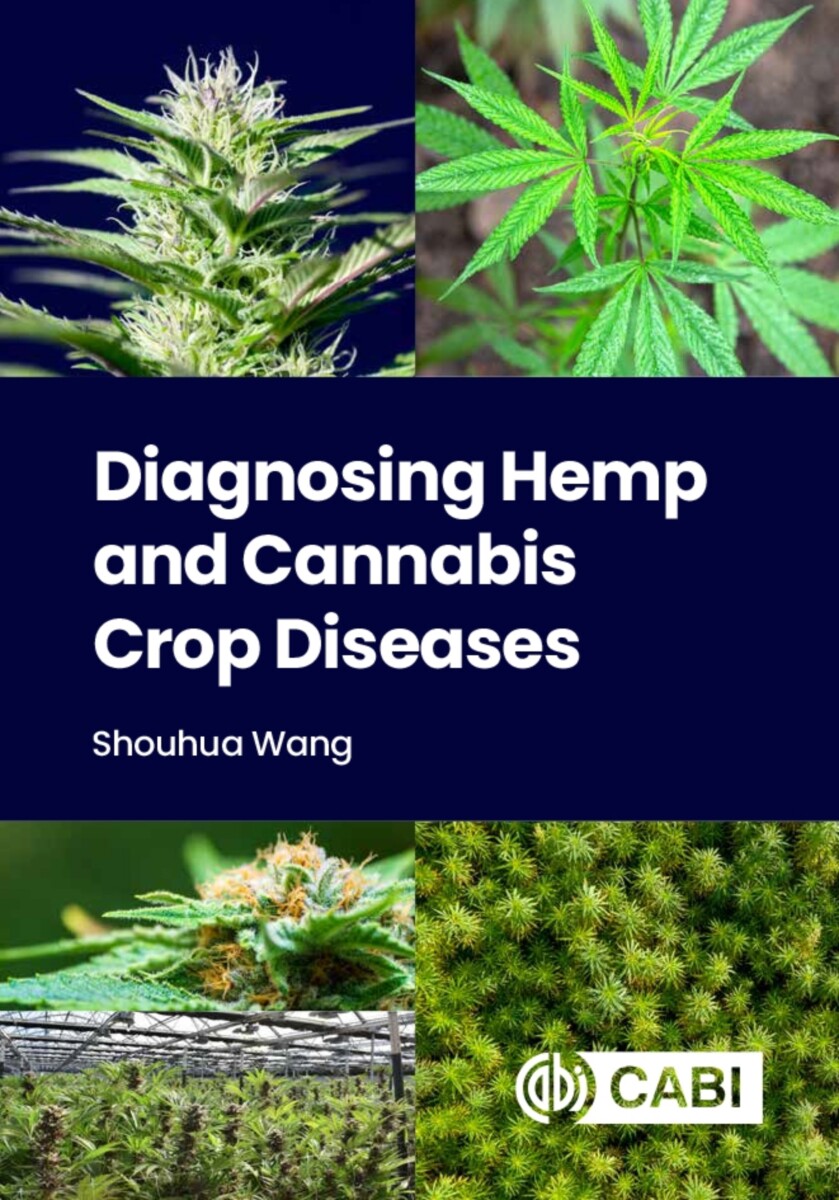Diagnosing Hemp and Cannabis Crop Diseases
- Publisher
CABI - Published
29th September 2021 - ISBN 9781789246070
- Language English
- Pages 336 pp.
- Size 7" x 9"
- Images 300 color photos
Hemp and cannabis, both belonging to Cannabis sativa, have emerged as some of the most valuable crops because of their multiple functionalities - industrial, medicinal, and recreational uses. Like all other crops, they are at risk of diseases and pests. In certain cases, an entire hemp field can fail due to unexpected disease. As a new and highly regulated crop, research on Cannabis crop diseases is scarce, and the science of plant diagnostics is not well covered in the literature.
This new book illustrates how to diagnose—in a hemp or cannabis crop—a disease problem and how to manage it effectively. It presents real disease cases encountered during production, and explains methods of diagnosis, both in the field and in the lab, in order to find out the cause(s). The book provides:
- A field and laboratory guide to diagnosing hemp and cannabis diseases and pest problems
- Ready-to-adopt skills, methods and protocols in plant diagnosis, which can be applied to other crops
- Over 300 color photographs accompanied by a wealth of disease information, including field observations, unique symptoms, microscopic details, and molecular data.
1: The Cannabis Plant
2: The Concept of Plant Disease
3: The Art of Plant Diagnostics
4: Building a Diagnostic Laboratory
5: Diagnostic Procedures and Protocols
6: Diagnosing Seed and Bud Diseases
7: Diagnosing Foliar Diseases
8: Diagnosing Stem Diseases
9: Diagnosing Root Diseases
10: Diagnosing Systemic Diseases
11: Diagnosing Noninfectious Diseases
12: Diagnosing Insect and Mite Damages
13: Holistic Diagnosis and Cannabis Microbiome
Shouhua Wang, PhD
Shouhua Wang studied agricultural sciences with an emphasis on plant pathology and nematology at China Agricultural University (formerly Beijing Agricultural University), followed by 5 years of postdoctoral research at the University of Arkansas, Fayetteville.He also earned a secondary Ph.D. degree in biomedical science, emphasizing in cellular and molecular pharmacology and physiology. Since 2001, he is the state plant pathologist conducting surveys, detections, diagnostics, and research of plant diseases and providing professional services to industries, the public, and the state. During his tenure, he has established a state-of-the-art molecular plant diagnostic laboratory that is capable of performing a broad range of diagnostics from traditional methods to bioinformatics approaches. The laboratory has been fully accredited by the NPDN STAR-D accreditation program. Dr. Wang has authored or co-authored 37 refereed journal articles and approximately 58 other publications. Most of his research addresses nematode diseases, genetic diversity of cyst nematodes, virus transmission by nematodes, soil-borne fungal diseases, biological control of plant diseases, molecular detection of Phytophthora, Fusarium, phytoplasma and other pathogens, and molecular biology of male reproduction. In his current position, he teaches a variety of topics to licensed arborists, pesticide applicators, master gardeners, and hemp/cannabis growers, and brings research expertise and life science technologies into plant health diagnostics to provide science-based services to clients including hemp and cannabis growers.


